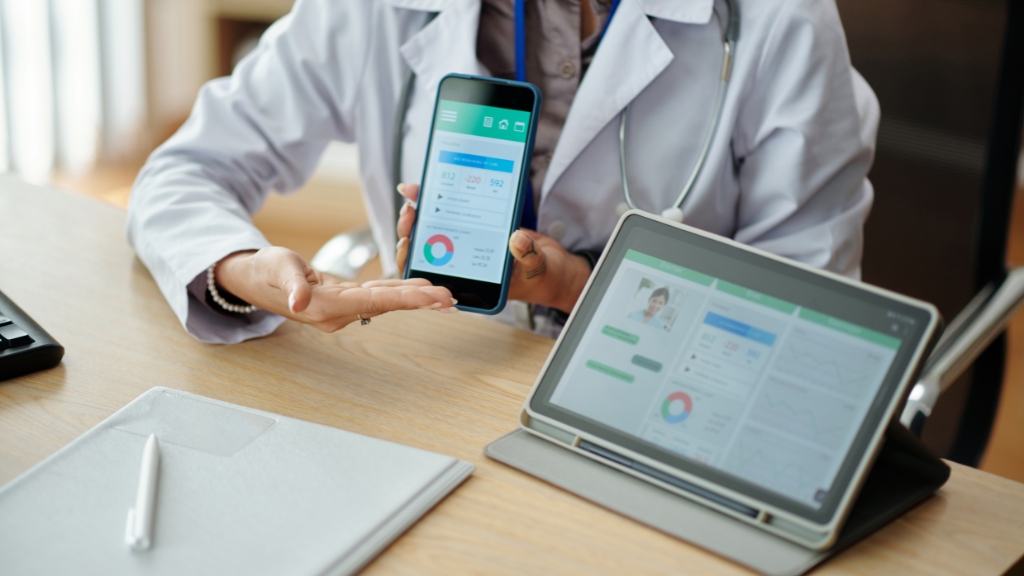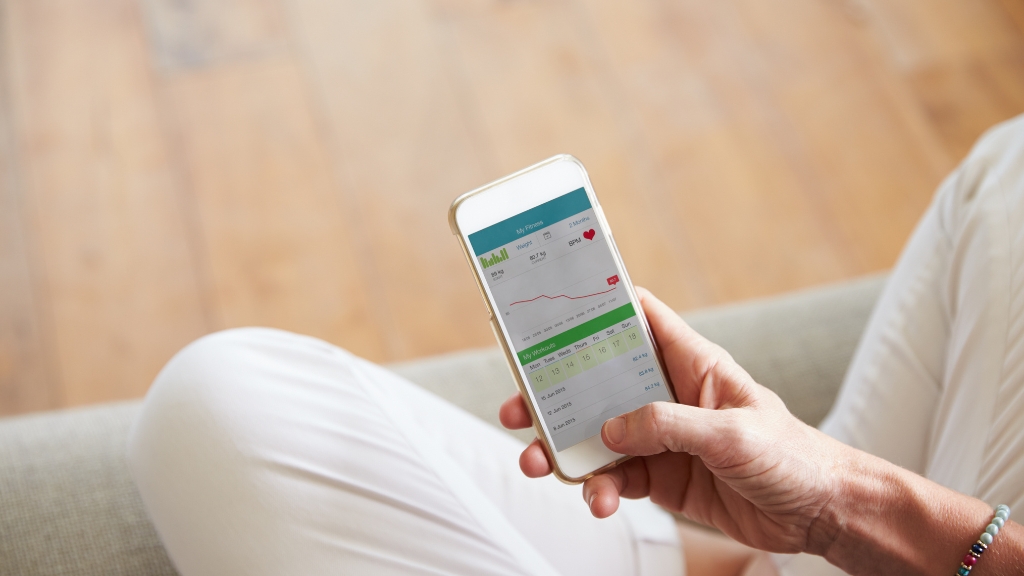
From Monitoring to Medication Healthcare Apps Demystified
Healthcare apps can be broadly categorized into several types based on their functionality:
- Health Monitoring Apps:
- Fitness Trackers: These apps help users monitor physical activity, heart rate, sleep patterns, and more. Popular examples include Fitbit and Apple Health.
- Chronic Disease Management: Apps like MySugr for diabetes management and AsthmaMD for asthma monitoring enable patients to track their symptoms and manage their conditions effectively.
- Telemedicine Apps:
- Virtual Consultations: Platforms like Teladoc and Doctor on Demand provide remote consultations with healthcare professionals, making healthcare accessible from anywhere.
- Specialist Access: Apps like DermAI allow patients to get specialist opinions, such as dermatological assessments, through digital consultations.
- Medication Management Apps:
- Pill Reminders: Apps such as Medisafe help patients remember to take their medications on time, reducing the risk of missed doses.
- Prescription Management: Applications like GoodRx provide information on drug prices and availability, helping patients manage their prescriptions cost-effectively.
- Mental Health Apps:
- Therapy and Counseling: Apps like BetterHelp and Talkspace offer remote counseling and therapy sessions, providing mental health support conveniently.
- Mindfulness and Stress Management: Headspace and Calm provide guided meditation and stress relief exercises, promoting overall mental well-being.
- Diagnostic and Monitoring Tools:
- Symptom Checkers: Apps like WebMD and Ada allow users to input symptoms and receive possible diagnoses, guiding them on the next steps for medical care.
- Remote Monitoring Devices: Applications paired with devices, such as blood pressure monitors or glucose meters, enable real-time health monitoring and data sharing with healthcare providers.
The Benefits of Healthcare Apps
Healthcare apps offer numerous benefits that improve patient outcomes and enhance the efficiency of healthcare delivery:
- Accessibility: Patients can access healthcare services from anywhere, reducing the need for physical visits and saving time.
- Convenience: Managing health records, appointments, and medications becomes simpler and more organized.
- Personalization: Apps provide tailored health advice and interventions based on individual health data and preferences.
- Engagement: Patients are more engaged in their health management, leading to better adherence to treatment plans.
- Cost Savings: Reduced need for in-person visits and better management of chronic conditions lead to overall cost savings for patients and healthcare systems.
Challenges and Considerations
While healthcare apps offer significant advantages, they also come with challenges that need to be addressed:
- Privacy and Security: Protecting patient data is paramount. Apps must comply with regulations like HIPAA to ensure data security and privacy.
- Accuracy: Ensuring the reliability and accuracy of health data and diagnostic tools is crucial to avoid misdiagnoses and inappropriate treatments.
- Integration: Seamless integration with existing healthcare systems and electronic health records (EHR) is necessary for comprehensive care coordination.
The Future of Healthcare Apps
The future of healthcare apps is promising, with advancements in technology such as artificial intelligence (AI) and machine learning (ML) poised to enhance their capabilities. Predictive analytics, personalized medicine, and more sophisticated telehealth platforms are on the horizon, making healthcare more proactive, efficient, and patient-centered.
Conclusion
Healthcare apps are revolutionizing the way we monitor, manage, and receive medical care. By offering convenient, personalized, and cost-effective solutions, these apps empower patients and healthcare providers alike. As technology continues to advance, the potential for healthcare apps to improve health outcomes and streamline medical processes is limitless.
Leave a Reply
- AI in Diagnostics: Revolutionizing Early Detection and Accuracy
- How AI and Advanced Analytics Are Transforming Healthcare Outcomes
- Investing with Confidence: The Role of ROI Calculators
- How ROI Calculators Drive Data-Driven Business Strategies
- The Ultimate Guide to ROI Calculators for Business Success
- Making Sense of ROI Calculators: A Comprehensive Guide
- June 2025 (1)
- May 2025 (1)
- October 2024 (2)
- September 2024 (31)
- August 2024 (31)
- July 2024 (27)
- June 2024 (28)
- May 2024 (30)
- April 2024 (33)
- March 2024 (23)
- February 2024 (29)
- January 2024 (3)
- December 2023 (47)
- November 2023 (36)
- October 2023 (23)
- September 2023 (2)
- June 2023 (2)
- May 2023 (13)
- April 2023 (1)




